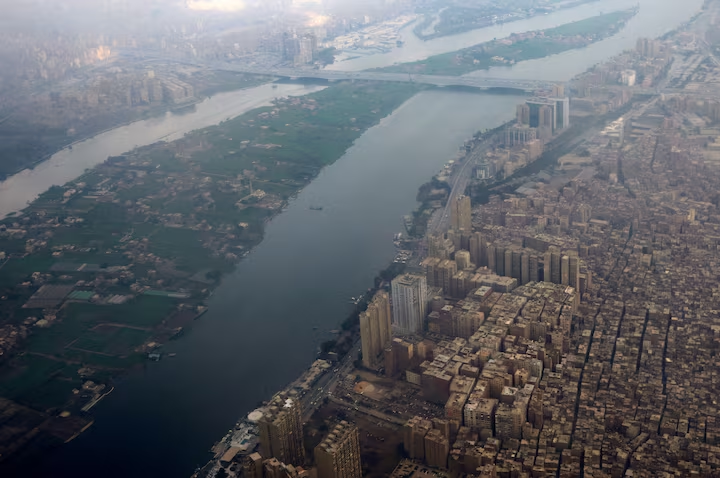Egypt has announced plans to construct a new city in the desert, sustained by water diverted from the Nile River, as part of its long-term strategy to manage population growth and boost agricultural production. The ambitious initiative, revealed by the government on June 1, aims to create a livable and productive settlement in the arid Western Desert, but has sparked environmental and geopolitical concerns over its potential impact on the already-stressed Nile basin.
The project, known as the “New Delta,” will involve massive infrastructure development, including canals, pumping stations, and water treatment systems to channel water from the Nile into areas previously uninhabitable due to extreme aridity. Officials say the city will be designed to house millions of people, support large-scale farming, and alleviate the growing population pressure on the Nile Delta and the Cairo metropolitan area.
Egypt’s Minister of Water Resources and Irrigation, Hani Sewilam, said the plan would help secure the nation’s food supply and economic resilience. “This is a strategic move to create sustainable living and farming environments beyond the traditional Nile corridor,” he said at a press briefing. “We are using modern technology and careful planning to ensure minimal water waste and maximum land productivity.”
However, the project has raised alarms among environmentalists and regional water experts. Diverting Nile water to support a new urban and agricultural hub could worsen water scarcity across the region, particularly as Egypt, Sudan, and Ethiopia remain locked in a years-long dispute over the Grand Ethiopian Renaissance Dam (GERD). Critics argue that the initiative may further strain downstream water availability and aggravate tensions with neighboring countries dependent on the same river.
The Nile provides over 90% of Egypt’s freshwater needs, and per capita water availability in the country is already below the United Nations-defined threshold for water scarcity. With a rapidly growing population nearing 110 million, Egypt has increasingly turned to land reclamation and megaprojects to cope with food insecurity and overcrowding.
Environmental groups warn that the project may also damage desert ecosystems and contribute to long-term land degradation if not managed carefully. “Building a city in the desert requires more than just water — it demands a sustainable balance between ecology, human activity, and regional climate conditions,” said Rasha Lotfy, an ecologist with the Egyptian Biodiversity Foundation.
In response to criticism, Egyptian officials maintain that the project will use advanced irrigation techniques, including drip and pivot systems, to reduce water consumption. The government is also investing in solar energy and wastewater reuse as part of its sustainability framework for the New Delta.
Preliminary construction work on canals and infrastructure has already begun, and the government says the first residential zones will be ready within five years. The city is also expected to include industrial zones, universities, and research centers focused on desert agriculture and climate adaptation.
The announcement coincides with increasing international focus on land use and water management in arid regions. Egypt has presented the New Delta project as a model of climate-resilient development that could be replicated in other parts of Africa and the Middle East facing similar challenges.
Still, observers caution that the long-term success of the plan will depend on transparent governance, effective regional coordination, and strict environmental safeguards. “It’s a bold vision,” said Mohamed Soliman, a senior fellow at the Middle East Institute, “but one that walks a tightrope between innovation and instability.”
As Egypt moves forward with its plans, it faces the challenge of balancing national development goals with regional water diplomacy and ecological stewardship, in a region where the flow of the Nile is as politically sensitive as it is vital to life.
Source; Reuters



